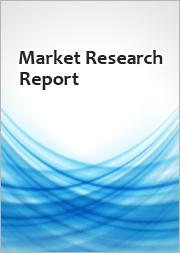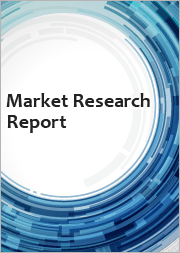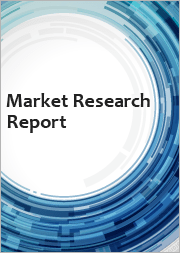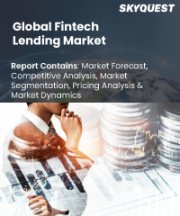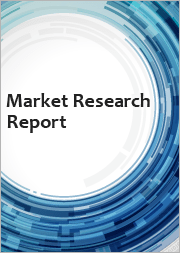
|
시장보고서
상품코드
1662680
FaaS(Fintech-as-a-Service) 시장 예측( -2030년) : 유형별, 기술별, 용도별, 최종사용자별, 지역별 세계 분석Fintech as a Service (FaaS) Market Forecasts to 2030 - Global Analysis by Type (Payment Processing, Wealth Management, Banking and Lending, Insurance and Compliance and Risk Management), Technology, Application, End User and By Geography |
||||||
Stratistics MRC에 따르면, 세계의 FaaS(Fintech-as-a-Service) 시장은 2024년 3,173억 달러로 예측 기간 동안 16.0%의 CAGR로 성장하여 2030년에는 7,733억 달러에 달할 것으로 예상됩니다. FaaS(Fintech-as-a-Service)는 API(Application Programming Interfaces)와 API 지원 인프라를 이용하여 금융 서비스 및 솔루션을 제공하는 클라우드 기반 플랫폼입니다. 이 방식을 통해 기업, 스타트업, 금융기관은 처음부터 시스템을 구축하지 않고도 대출, 결제, 사기 탐지, 컴플라이언스, 디지털 지갑과 같은 중요한 금융 서비스를 자사 상품이나 앱에 통합할 수 있습니다. FaaS를 통해 기업은 안전하고 신뢰할 수 있는 금융 기술 인프라에 의존하여 복잡한 금융 프로세스를 관리하고, 업무를 간소화하고, 고객 경험을 개선하며, 혁신에 집중할 수 있습니다. 혁신에 집중할 수 있습니다.
디지털 결제에 대한 수요 증가
디지털 결제에 대한 수요가 증가함에 따라 기업들은 마찰이 없고 안전하며 확장성이 높은 결제 솔루션을 도입하여 FaaS(Fintech-as-a-Service) 산업에 박차를 가하고 있으며, FaaS 솔루션은 통합된 결제 처리, 사기 탐지, 컴플라이언스 툴을 제공합니다. 컴플라이언스 툴을 제공하여 소비자와 기업이 현금 없는 거래로 전환하는 가운데 조직이 고객의 기대에 부응할 수 있도록 돕습니다. 이러한 수요는 기업이 재무 프로세스를 보다 효과적으로 관리하고 클라우드 기반 솔루션의 채택을 촉진하며 결제 시스템 혁신을 촉진할 수 있도록 돕습니다.
데이터 보안 및 프라이버시 문제
데이터 보안과 프라이버시 문제는 기밀성이 높은 금융 데이터를 제3자 플랫폼에 저장 및 처리하는 데 따른 위험을 증가시킴으로써 FaaS(Fintech-as-a-Service) 비즈니스에 큰 영향을 미칩니다. 금융 데이터 및 개인 데이터의 침해, 무단 접근, 악용 가능성으로 인해 고객의 신뢰가 훼손되고, 규제 당국의 모니터링 및 컴플라이언스 문제로 발전할 수 있습니다. 이러한 문제는 특히 데이터 프라이버시 규제가 엄격한 지역에서는 보급을 지연시키고 시장 확대와 혁신을 저해할 수 있습니다.
기술 발전
기술 발전은 클라우드 플랫폼, API, 데이터 분석의 기능을 강화함으로써 FaaS(Fintech-as-a-Service) 시장을 크게 견인할 것입니다. 이러한 기술 혁신은 금융 서비스의 속도, 보안, 확장성을 향상시켜 기업이 보다 효율적이고 비용 효율적인 솔루션을 제공할 수 있도록 돕습니다. 또한, 인공지능, 머신러닝, 블록체인의 발전은 더 나은 사기 탐지, 개인화된 고객 경험, 더 빠른 트랜잭션 처리를 가능하게함으로써 FaaS 플랫폼은 금융 부문에서 혁신과 경쟁력을 유지하고자 하는 기업들에게 더욱 매력적으로 다가오고 있습니다. 더욱 매력적으로 변모하고 있습니다.
통합의 복잡성
통합의 복잡성은 기업이 새로운 솔루션을 도입하는 데 있어 장벽이 되어 FaaS(Fintech-as-a-Service) 시장을 저해하는 요인으로 작용하고 있습니다. 기업들은 FaaS 플랫폼을 기존 시스템에 원활하게 통합하는 데 어려움을 겪고 있으며, 이로 인해 지연, 비용 증가, 잠재적인 업무 중단이 발생하기도 합니다. 이러한 문제는 레거시 인프라와 복잡한 워크플로우를 가진 기업에서 특히 두드러지게 나타나며, FaaS 솔루션의 보급을 제한하고 시장 성장을 둔화시키는 요인으로 작용하고 있습니다.
COVID-19의 영향
COVID-19는 FaaS(Fintech-as-a-Service) 부문의 확장을 촉진하고, 기업과 소비자들은 디지털 및 비대면 금융 서비스로 빠르게 전환하고 있으며, E-Commerce, 원격 뱅킹, 온라인 거래의 증가로 인해 안전하고 확장성이 높은 금융 솔루션에 대한 수요가 증가하고 있습니다. 금융 솔루션에 대한 요구가 높아졌습니다. FaaS 플랫폼은 기존 은행 서비스에 대한 유연하고 저렴한 대안을 제공함으로써 기업이 변화하는 시장 환경에 빠르게 적응하고 시장 수용성을 높일 수 있도록 했습니다.
예측 기간 동안 금융기관 부문이 가장 큰 비중을 차지할 것으로 예상됩니다.
금융기관 부문은 효과적이고 확장 가능하며 안전한 솔루션에 대한 요구로 인해 결제, 대출, 컴플라이언스 등의 통합 서비스를 제공하는 FaaS 시스템에 대한 수요가 증가함에 따라 예측 기간 동안 가장 큰 시장 점유율을 차지할 것으로 예상됩니다. 고객 경험 개선, 업무 가속화, 규제 요건 충족을 위해 FaaS 제공업체와 협력함으로써 이들 조직은 시장 확대를 촉진할 것으로 예상됩니다. 이러한 기업의 진입은 시장을 확대하고 산업 전반의 수용을 촉진할 것입니다.
예측 기간 동안 결제 처리 부문이 가장 높은 CAGR을 기록할 것으로 예상됩니다.
결제 처리 서비스를 제공하는 FaaS 플랫폼은 기업이 결제 솔루션을 빠르게 도입하고 소비자 경험을 향상시킬 수 있도록 돕고 있습니다. 강력한 결제 처리 인프라에 대한 요구는 모바일 지갑, 비접촉식 결제, 국경 간 거래에 대한 수요 증가로 인해 더욱 가속화되고 있으며, 이는 시장 확대와 FaaS 솔루션의 사용을 촉진하고 있습니다.
가장 큰 점유율을 차지하는 지역
예측 기간 동안 북미는 첨단 디지털 인프라, 원활한 디지털 결제에 대한 높은 수요, 핀테크 스타트업의 급격한 성장으로 인해 가장 큰 시장 점유율을 차지할 것으로 예상됩니다. 비용 효율적이고 확장성이 뛰어난 금융 솔루션의 필요성으로 인해 기업들은 보다 빠르고 안전한 거래와 진화하는 규제 준수를 위해 FaaS 플랫폼을 채택하고 있습니다. 또한, 개인화된 금융 서비스에 대한 소비자 수요 증가와 금융 포용성 확대는 북미에서 FaaS 도입을 더욱 가속화하고 있습니다.
CAGR이 가장 높은 지역
예측 기간 동안 아시아태평양은 급속한 디지털 혁신, 스마트폰 보급률 증가, 지역 내 디지털 결제 도입 증가로 인해 가장 높은 CAGR을 기록할 것으로 예상됩니다. 각국 정부는 규제 지원과 핀테크 혁신 촉진을 통해 금융 포용을 촉진하고 있으며, E-Commerce의 부상, 은행 계좌가 없는 인구의 증가, 현금 없는 거래로의 전환은 FaaS 솔루션에 대한 수요를 더욱 촉진하고 있습니다. 또한, 이 지역에는 핀테크 스타트업이 증가하고 있으며, 시장 환경도 양호하여 비용 효율적인 금융 서비스 도입이 가속화되고 있습니다.
무료 커스터마이징 서비스
본 보고서를 구독하는 고객은 다음과 같은 무료 맞춤화 옵션 중 하나를 이용할 수 있습니다.
- 기업 소개
- 추가 시장 진입 기업의 종합적인 프로파일링(최대 3개사까지)
- 주요 기업 SWOT 분석(3개사까지)
- 지역 세분화
- 고객의 관심에 따른 주요 국가별 시장 추정 및 예측, CAGR(주: 타당성 검토에 따른)
- 경쟁사 벤치마킹
- 제품 포트폴리오, 지리적 입지, 전략적 제휴를 통한 주요 기업 벤치마킹
목차
제1장 주요 요약
제2장 서문
- 개요
- 이해관계자
- 조사 범위
- 조사 방법
- 데이터 마이닝
- 데이터 분석
- 데이터 검증
- 조사 접근법
- 조사 정보 출처
- 1차 조사 정보 출처
- 2차 조사 정보 출처
- 가정
제3장 시장 동향 분석
- 소개
- 성장 촉진요인
- 성장 억제요인
- 기회
- 위협
- 기술 분석
- 용도 분석
- 최종사용자 분석
- 신흥 시장
- COVID-19의 영향
제4장 Porter's Five Forces 분석
- 공급 기업의 교섭력
- 구매자의 교섭력
- 대체품의 위협
- 신규 참여업체의 위협
- 경쟁 기업 간의 경쟁 관계
제5장 세계의 FaaS(Fintech-as-a-Service) 시장 : 유형별
- 소개
- 결제 처리
- 자산 관리
- 은행 업무와 융자
- 보험
- 컴플라이언스와 리스크 관리
제6장 세계의 FaaS(Fintech-as-a-Service) 시장 : 기술별
- 소개
- 인공지능과 머신러닝(AI &ML)
- 블록체인
- 로보틱 프로세스 자동화(RPA)
- 애플리케이션 프로그래밍 인터페이스(API)
- 빅데이터
제7장 세계의 FaaS(Fintech-as-a-Service) 시장 : 용도별
- 소개
- 부정행위 모니터링
- KYC 검증
- 컴플라이언스와 규제 서포트
- 데이터 분석과 인사이트
- 고객 온보딩과 어카운트 관리
- 자금 관리
- 부동산 주택 론서비스
- 기타
제8장 세계의 FaaS(Fintech-as-a-Service) 시장 : 최종사용자별
- 소개
- 은행
- 금융기관
- 보험회사
- 기타
제9장 세계의 FaaS(Fintech-as-a-Service) 시장 : 지역별
- 소개
- 북미
- 미국
- 캐나다
- 멕시코
- 유럽
- 독일
- 영국
- 이탈리아
- 프랑스
- 스페인
- 기타 유럽
- 아시아태평양
- 일본
- 중국
- 인도
- 호주
- 뉴질랜드
- 한국
- 기타 아시아태평양
- 남미
- 아르헨티나
- 브라질
- 칠레
- 기타 남미
- 중동 및 아프리카
- 사우디아라비아
- 아랍에미리트
- 카타르
- 남아프리카공화국
- 기타 중동 및 아프리카
제10장 주요 개발
- 계약, 파트너십, 협업, 합작투자
- 인수와 합병
- 신제품 발매
- 사업 확대
- 기타 주요 전략
제11장 기업 개요
- Airwallex
- Stripe
- Plaid
- Marqeta
- Rapyd
- Synapse
- Solarisbank
- Unit
- Railsbank
- Finix
- Galileo Financial Technologies
- Mambu
- Bankable
- Currencycloud
- Dwolla
- Weavr
- OpenPayd
- Treasury Prime
According to Stratistics MRC, the Global Fintech as a Service (FaaS) Market is accounted for $317.3 billion in 2024 and is expected to reach $773.3 billion by 2030 growing at a CAGR of 16.0% during the forecast period. Fintech as a Service (FaaS) is a cloud-based platform that offers financial services and solutions using APIs (Application Programming Interfaces) and API-enabled infrastructure. Without creating these systems from the ground up, this methodology allows companies, startups, and financial institutions to include crucial financial services like loans, payments, fraud detection, compliance, and digital wallets into their goods or apps. FaaS systems enable businesses to swiftly acquire and deploy financial innovations since they are scalable, flexible, and cost-effective. FaaS enables companies to rely on safe and reliable financial technology infrastructure to manage intricate financial processes while streamlining operations, enhancing customer experience, and concentrating on innovation.
Market Dynamics:
Driver:
Increased Demand for Digital Payments
The growing need for digital payments is propelling the Fintech as a Service (FaaS) industry by pushing businesses to embrace frictionless, secure, and scalable payment solutions. FaaS solutions provide integrated payment processing, fraud detection, and compliance tools that help organizations fulfill customer expectations as consumers and businesses move toward cashless transactions. Businesses may more effectively manage their financial processes due to this demand, which also stimulates the adoption of cloud-based solutions and encourages innovation in payment systems.
Restraint:
Data Security and Privacy Concerns
Data security and privacy issues have a substantial impact on the Fintech as a Service (FaaS) business by increasing the risks involved with storing and processing sensitive financial data on third party platforms. Customer trust can be damaged by possible breaches, illegal access, or abuse of financial and personal data, which can result in regulatory scrutiny and compliance issues. These problems might impede market expansion and innovation by slowing adoption, especially in areas with strict data privacy regulations.
Opportunity:
Technological Advancements
Technological advancements significantly drive the Fintech as a Service (FaaS) market by enhancing the capabilities of cloud platforms, APIs, and data analytics. These innovations improve the speed, security, and scalability of financial services, allowing businesses to offer more efficient, cost-effective solutions. Moreover, advancements in artificial intelligence, machine learning, and blockchain enable better fraud detection, personalized customer experiences, and faster transaction processing, making FaaS platforms more attractive to businesses looking to innovate and stay competitive in the financial sector.
Threat:
Integration Complexity
Integration complexity hinders the Fintech as a Service (FaaS) market by creating barriers for businesses in adopting new solutions. Companies often struggle to seamlessly incorporate FaaS platforms into their existing systems, leading to delays, increased costs, and potential operational disruptions. This challenge can be particularly pronounced for businesses with legacy infrastructure or complex workflows, limiting the widespread adoption of FaaS solutions and slowing market growth.
Covid-19 Impact:
The COVID-19 epidemic spurred the expansion of the Fintech as a Service (FaaS) sector, as companies and consumers quickly transitioned to digital and contactless financial services. The need for safe and expandable financial solutions was fueled by the rise of e-commerce, remote banking, and online transactions. By providing flexible, affordable alternatives to traditional banking services, FaaS platforms allowed firms to swiftly adjust to shifting market conditions and increase market acceptance.
The financial institutes segment is expected to be the largest during the forecast period
The financial institutes segment is expected to account for the largest market share during the forecast period because the demand for FaaS systems that offer integrated services like payments, loans, and compliance is accelerated by their need for effective, scalable, and secure solutions. By collaborating with FaaS providers to improve client experiences, expedite operations, and satisfy regulatory requirements, these organizations propel market expansion. Their participation expands the market and promotes industry-wide acceptance.
The payment processing segment is expected to have the highest CAGR during the forecast period
Over the forecast period, the payment processing segment is predicted to witness the highest growth rate as digital payments gain popularity, FaaS platforms that provide payment processing services allow businesses to swiftly incorporate payment solutions, improving the consumer experience. The requirement for a strong payment processing infrastructure is further accelerated by the growing demand for mobile wallets, contactless payments, and cross-border transactions, which promotes market expansion and the use of FaaS solutions.
Region with largest share:
During the forecast period, the North America region is expected to hold the largest market share due to region's advanced digital infrastructure, high demand for seamless digital payments, and the rapid growth of fintech startups. The need for cost-effective and scalable financial solutions has led businesses to adopt FaaS platforms for faster, secure transactions and compliance with evolving regulations. Additionally, increased consumer demand for personalized financial services and the push for financial inclusion further accelerate the adoption of FaaS in North America.
Region with highest CAGR:
Over the forecast period, the Asia Pacific region is anticipated to exhibit the highest CAGR owing to rapid digital transformation, increasing smartphone penetration, and the growing adoption of digital payments across the region. Governments are promoting financial inclusion through regulatory support and fostering fintech innovation. The rise of e-commerce, a large unbanked population, and a shift towards cashless transactions further boost demand for FaaS solutions. Additionally, the region's growing fintech startups and favorable market conditions accelerate the adoption of cost-effective financial services.
Key players in the market
Some of the key players in Fintech as a Service (FaaS) market include Airwallex, Stripe, Plaid, Marqeta, Rapyd, Synapse, Solarisbank, Unit, Railsbank, Finix, Galileo Financial Technologies, Mambu, Bankable, Currencycloud, Dwolla, Weavr, OpenPayd and Treasury Prime.
Key Developments:
In January 2025, Airwallex announced its partnership with Carwow. Following the integration of Airwallex's Scale Native API, Carwow can now process payments for those enterprise dealer groups who purchase cars from thousands of private sellers through its daily online auctions every week.
In December 2024, Airwallex has expanded headcount in its Tel Aviv and Vilnius offices, and made two senior Executive Director Appointments - in London and Amsterdam - which brings the total employee count in EMEA to over 150, representing over 38 nationalities.
In November 2024, Airwallex announced that it is launching Airwallex for Startups in New Zealand, to help Kiwi startups to accelerate their growth.
Types Covered:
- Payment Processing
- Wealth Management
- Banking and Lending
- Insurance
- Compliance and Risk Management
Technologies Covered:
- Artificial Intelligence and Machine Learning (AI & ML)
- Blockchain
- Robotic Process Automation (RPA)
- Application Programming Interface (API)
- Big data
Applications Covered:
- Fraud Monitoring
- KYC Verification
- Compliance & Regulatory Support
- Data Analytics and Insights
- Customer Onboarding & Account Management
- Money Management
- Real Estate Mortgage Services
- Other Applications
End Users Covered:
- Banks
- Financial Institutes
- Insurance Companies
- Other End Users
Regions Covered:
- North America
- US
- Canada
- Mexico
- Europe
- Germany
- UK
- Italy
- France
- Spain
- Rest of Europe
- Asia Pacific
- Japan
- China
- India
- Australia
- New Zealand
- South Korea
- Rest of Asia Pacific
- South America
- Argentina
- Brazil
- Chile
- Rest of South America
- Middle East & Africa
- Saudi Arabia
- UAE
- Qatar
- South Africa
- Rest of Middle East & Africa
What our report offers:
- Market share assessments for the regional and country-level segments
- Strategic recommendations for the new entrants
- Covers Market data for the years 2022, 2023, 2024, 2026, and 2030
- Market Trends (Drivers, Constraints, Opportunities, Threats, Challenges, Investment Opportunities, and recommendations)
- Strategic recommendations in key business segments based on the market estimations
- Competitive landscaping mapping the key common trends
- Company profiling with detailed strategies, financials, and recent developments
- Supply chain trends mapping the latest technological advancements
Free Customization Offerings:
All the customers of this report will be entitled to receive one of the following free customization options:
- Company Profiling
- Comprehensive profiling of additional market players (up to 3)
- SWOT Analysis of key players (up to 3)
- Regional Segmentation
- Market estimations, Forecasts and CAGR of any prominent country as per the client's interest (Note: Depends on feasibility check)
- Competitive Benchmarking
- Benchmarking of key players based on product portfolio, geographical presence, and strategic alliances
Table of Contents
1 Executive Summary
2 Preface
- 2.1 Abstract
- 2.2 Stake Holders
- 2.3 Research Scope
- 2.4 Research Methodology
- 2.4.1 Data Mining
- 2.4.2 Data Analysis
- 2.4.3 Data Validation
- 2.4.4 Research Approach
- 2.5 Research Sources
- 2.5.1 Primary Research Sources
- 2.5.2 Secondary Research Sources
- 2.5.3 Assumptions
3 Market Trend Analysis
- 3.1 Introduction
- 3.2 Drivers
- 3.3 Restraints
- 3.4 Opportunities
- 3.5 Threats
- 3.6 Technology Analysis
- 3.7 Application Analysis
- 3.8 End User Analysis
- 3.9 Emerging Markets
- 3.10 Impact of Covid-19
4 Porters Five Force Analysis
- 4.1 Bargaining power of suppliers
- 4.2 Bargaining power of buyers
- 4.3 Threat of substitutes
- 4.4 Threat of new entrants
- 4.5 Competitive rivalry
5 Global Fintech as a Service (FaaS) Market, By Type
- 5.1 Introduction
- 5.2 Payment Processing
- 5.3 Wealth Management
- 5.4 Banking and Lending
- 5.5 Insurance
- 5.6 Compliance and Risk Management
6 Global Fintech as a Service (FaaS) Market, By Technology
- 6.1 Introduction
- 6.2 Artificial Intelligence and Machine Learning (AI & ML)
- 6.3 Blockchain
- 6.4 Robotic Process Automation (RPA)
- 6.5 Application Programming Interface (API)
- 6.6 Big data
7 Global Fintech as a Service (FaaS) Market, By Application
- 7.1 Introduction
- 7.2 Fraud Monitoring
- 7.3 KYC Verification
- 7.4 Compliance & Regulatory Support
- 7.5 Data Analytics and Insights
- 7.6 Customer Onboarding & Account Management
- 7.7 Money Management
- 7.8 Real Estate Mortgage Services
- 7.9 Other Applications
8 Global Fintech as a Service (FaaS) Market, By End User
- 8.1 Introduction
- 8.2 Banks
- 8.3 Financial Institutes
- 8.4 Insurance Companies
- 8.5 Other End Users
9 Global Fintech as a Service (FaaS) Market, By Geography
- 9.1 Introduction
- 9.2 North America
- 9.2.1 US
- 9.2.2 Canada
- 9.2.3 Mexico
- 9.3 Europe
- 9.3.1 Germany
- 9.3.2 UK
- 9.3.3 Italy
- 9.3.4 France
- 9.3.5 Spain
- 9.3.6 Rest of Europe
- 9.4 Asia Pacific
- 9.4.1 Japan
- 9.4.2 China
- 9.4.3 India
- 9.4.4 Australia
- 9.4.5 New Zealand
- 9.4.6 South Korea
- 9.4.7 Rest of Asia Pacific
- 9.5 South America
- 9.5.1 Argentina
- 9.5.2 Brazil
- 9.5.3 Chile
- 9.5.4 Rest of South America
- 9.6 Middle East & Africa
- 9.6.1 Saudi Arabia
- 9.6.2 UAE
- 9.6.3 Qatar
- 9.6.4 South Africa
- 9.6.5 Rest of Middle East & Africa
10 Key Developments
- 10.1 Agreements, Partnerships, Collaborations and Joint Ventures
- 10.2 Acquisitions & Mergers
- 10.3 New Product Launch
- 10.4 Expansions
- 10.5 Other Key Strategies
11 Company Profiling
- 11.1 Airwallex
- 11.2 Stripe
- 11.3 Plaid
- 11.4 Marqeta
- 11.5 Rapyd
- 11.6 Synapse
- 11.7 Solarisbank
- 11.8 Unit
- 11.9 Railsbank
- 11.10 Finix
- 11.11 Galileo Financial Technologies
- 11.12 Mambu
- 11.13 Bankable
- 11.14 Currencycloud
- 11.15 Dwolla
- 11.16 Weavr
- 11.17 OpenPayd
- 11.18 Treasury Prime






